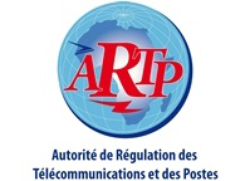July 15, 2016
Breaking news

In Senegal, the Autorité de régulation des télécommunications et des postes (ARTP ; English translation: Telecommunications and Posts Regulatory Authority) has, just like all regulators, inherent powers to impose sanctions. In general, the important thing is not only to exercise this sanctioning power but to exercise it in a way that reinforces the authority of the Regulator. In this perspective, the new Sonatel sanction decision is important.
As a sanctions always carry a heavier weight when people are made aware of it, the Director General of the Artp issued a press release, that has been flagged as particularly important, and held a press conference (in French) on a particularly serious sanction imposed following what the Regulator considers as the non-fulfilment of obligations stemming from formal notices (which, by the way, the telecom operator challenges on the merits).
On 21 November 2014 indeed, the Sonatel was given a formal notice from the Artp to respect consumer rights. As the code of telecommunications provides since its modification in 2014, operators shall "prendre les mesures appropriées de dimensionnement de leurs réseaux de nature à garantir à leurs clients un accès ininterrompu à leur service client commercial ou technique en respectant un taux d’efficacité minimal" (translation: "take appropriate measures to size their networks in a way that provides their consumers with an uninterrupted access to their customer service (sales service and technical support) which would respect a minimum efficiency rate") set by the Regulator itself- as to, namely, ensure that the right of consumers to be informed is satisfied (as regards billing mechanisms) and that their calls to consumer services remain free of charge. As the Regulator estimated that the Sonatel was not complying with such regulations, it conducted a formal investigation and notified a statement of objections to the operator, before sending on 28 January 2015 a second formal notice for the same reasons.
On 14 July 2016, the Regulator imposed a sanction on Sonatel since the it still estimated that the operator's behavior still was not leading to a compliant situation as regards the consumer right to be informed. The sanction, as stated in the Sonatel decision, is 13 billion 959 million FCfa (c. €20m), i.e., 15% of Sonatel's 2015 turnover. The sanction decision also provides that if the operator does not enforce it, an additional penalty of 10m FCfa (c. €15,000) per day will be charged.
The operator, however, challenges this sanction insofar as it estimates that its behavior is not to be blamed. To support its claim, Sonatel avails itself from the fact that upon reception of the first formal notice, it undertook a 'progressive compliance' with the requirements process as regards its network, then let the Regulator know about it, etc. It is henceforth to lodge an appeal.
The issue at stake, therefore, is to know whether the obligations on operators are obligations regarding the means used (that is to say, means obligations), or, conversely, if they are obligations to produce results (performance obligations). If they are means obligations, then the operator is right. However, considering the efficiency and effectivity principes that are closely linked with the teleological nature of Regulation, it is more likely that such obligations are performance obligations.
For instance, in France, the Commission Informatiques et Libertés (French Data Protection Authority- CNIL) considered on 1 March 2016!footnote-42 that the obligations on operators to have accurate and complete data are performance obligations and not mere means obligations.
Thus, there is probably more to follow with this Sonatel decision. The day the press release was issued, the operator stated it intended to lodge a hierarchical appeal before the Minister.
The next day, the Director General of the Artp stated in the press (in French) that under the Senegal law, the appeal could only be lodged before a jurisdiction, or before... the Regulatory Authority itself (request for reconsideration - in French : "recours gracieux").
This situation is thus a great reminder that new illustrations of the interplays between Regulation and Politics can always be found.

July 4, 2016
Breaking news

Speaking to the press is a way for the Regulator to reach everyone, including policymakers, European institutions, and fellow Regulators who also seek to compete for space in the digital area.
As he reported: "Nous arrivons aujourd’hui, avec l'irruption du numérique, à un acte 2 de la régulation. Il y a 20 ans, on est passé du modèle PTT où l’Etat produisait le service public, au modèle d’État-régulateur qui a permis l’ouverture à la concurrence. Ce modèle vise à une bonne organisation du marché avec des outils de pilotage efficaces, mais parfois très intrusifs : les licences mobiles, qui sont des contrats assortis de sanctions administratives en cas de non-respect des obligations, ou le dégroupage, qui est une intervention sur la propriété privée… Aujourd’hui il nous faut franchir une étape nouvelle et nous projeter dans la suite, repenser nos outils pour permettre, en complément, une régulation plus focalisée, plus humble et plus agile". We can translate this passage as it follows : “As of today, considering the onset of digital, we are getting to a second phase for Regulation. Over the past 20 years, we went from the ‘PTT model’, where the State provided for public service, to a new Regulatory State model that enabled competition to thrive. This model aims for good market organization with effective management tools, which may be sometimes very intrusive: e.g., mobile licenses, which are agreements that include administrative penalties in the event of failure to comply with its provisions, or unbundled access, which relates to a State intervention on private ownership… Today, we need to take it another step further and plan for the future, reconsider our tools to allow for a Regulation that would be better focused, humbler and nimbler”.
Whatever “Phase 1” was would thus be already outpaced. Farewell stringent public service, so long market openings to competition. Such an understanding of Regulation was certainly consistent with the idea that Regulation was only meant to be temporary, namely considering the everlasting protection of personal data by the dedicated supervisory authority (Commission Nationale Informatique et Libertés, CNIL)…
We would then need to implement “Phase 2” and, as Sébastien Soriano advises, to “Regulate by the multitude”, which is "a concept that includes consumers, but also users, observers, and the civil society as a whole. The key question is how to use the power of information to get the greatest possible leverage on the market while relying on the multitude. The answer is clear: Regulation by data" ("La multitude, ce sont les utilisateurs, les observateurs, la société civile. Cela inclut les consommateurs, mais pas uniquement. Et la question centrale, c’est comment utiliser le pouvoir de l’information pour avoir un maximum d'effet de levier sur le marché et grâce à la multitude. La réponse, c’est la régulation par la data.").
Like all the others, the Telecom Regulator introduces himself as a sort of ‘natural’ Regulator for digital activities, as he relies on the key notion that is information. In doing so, he is seeking allies that are just as natural as he is— that is to say, consumers. Consumers fall indeed into the scope of the Regulator insofar as they provide him with the information he needs to Regulate the digital sector and space.
The Regulator thus does not define himself anymore as the one that protects consumers against the market, but as the one that binds the two together, transforming the complaint into a civic act: “There’s a problem. As a consumer, I am alerting you as a Regulator who has the means to regulate market failures and whom I shall let operate”.
In such a statement, the ARCEP not only becomes the ‘natural’ digital Regulator, but it also become the one that operates on the grounds of information brought by the web-user, who is protected by and who somehow benefits in return from the action of the Regulator.
Two concluding thoughts:
- What a nimble reasoning indeed from the Regulator, who had initially been created to be the ‘container Regulator’, and who is now becoming, since Phase 2 is on its way, a kind of ‘overall’ Regulator that regulates both the container and the content.
- This is a salient example that rationales and frameworks that were developed by the Banking and Financial Regulation are modelling Regulation in general: see whistleblowers, information, obsolescence of the ‘public service’.
Updated: Dec. 12, 2011 (Initial publication: Dec. 12, 2011)
Thesaurus : Doctrine
